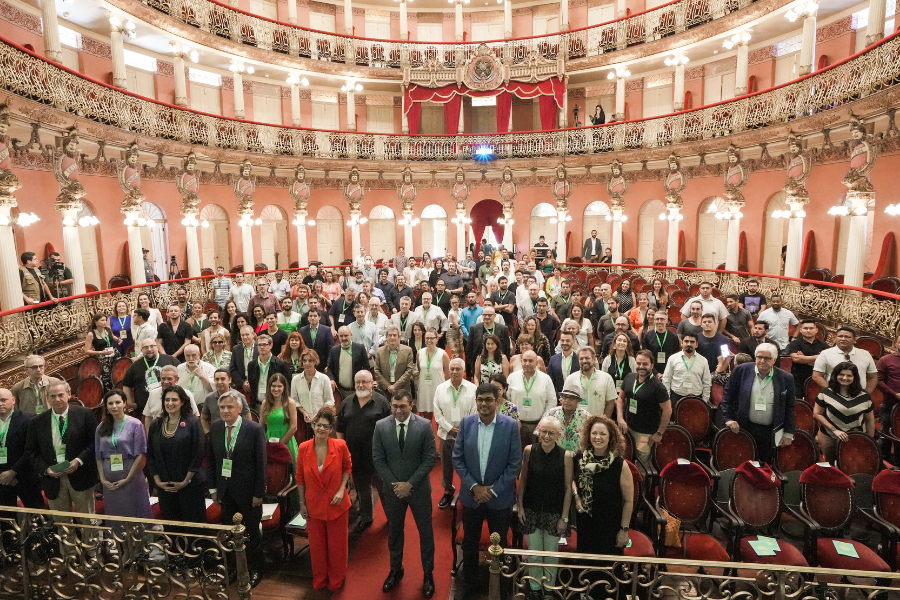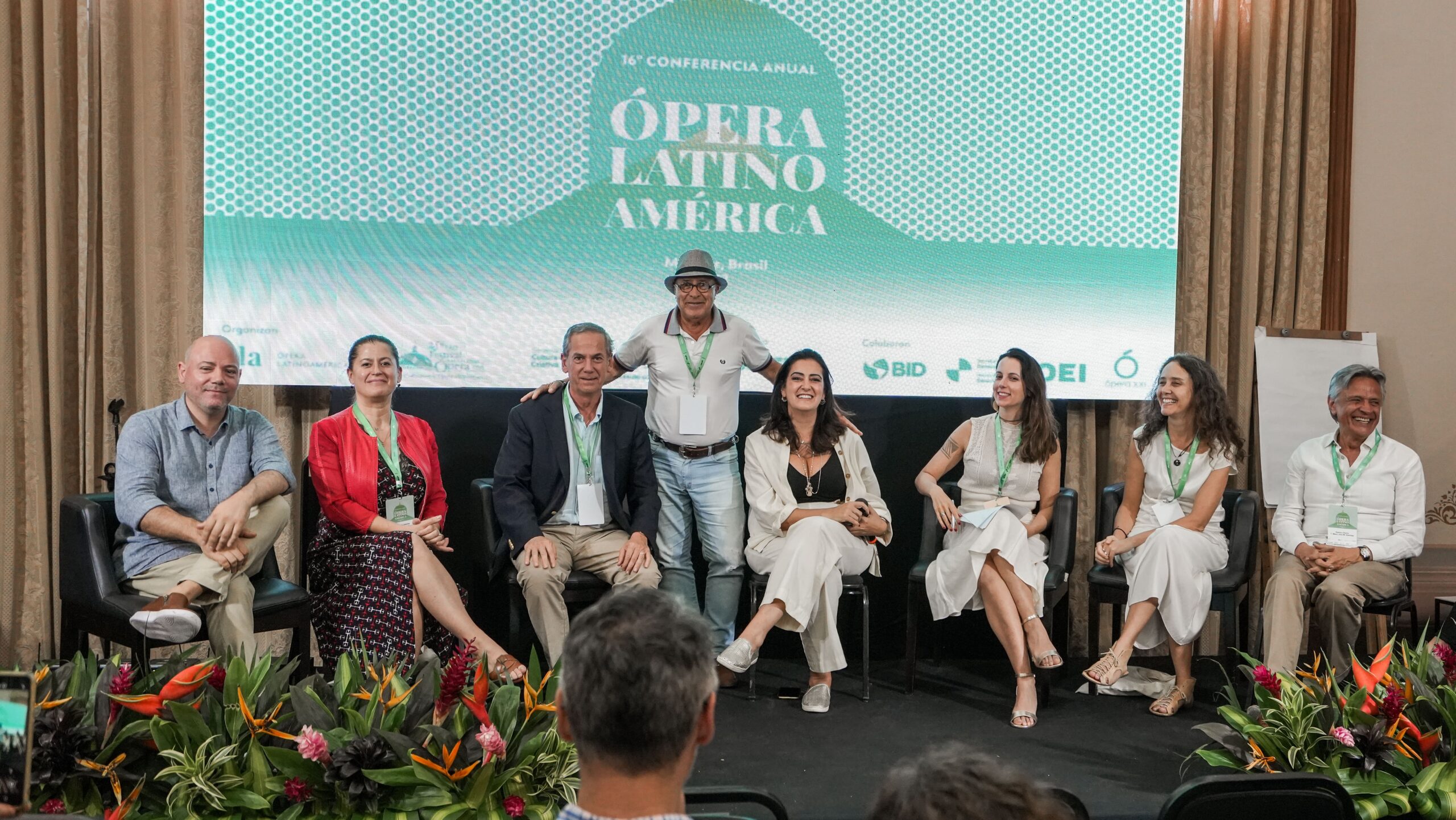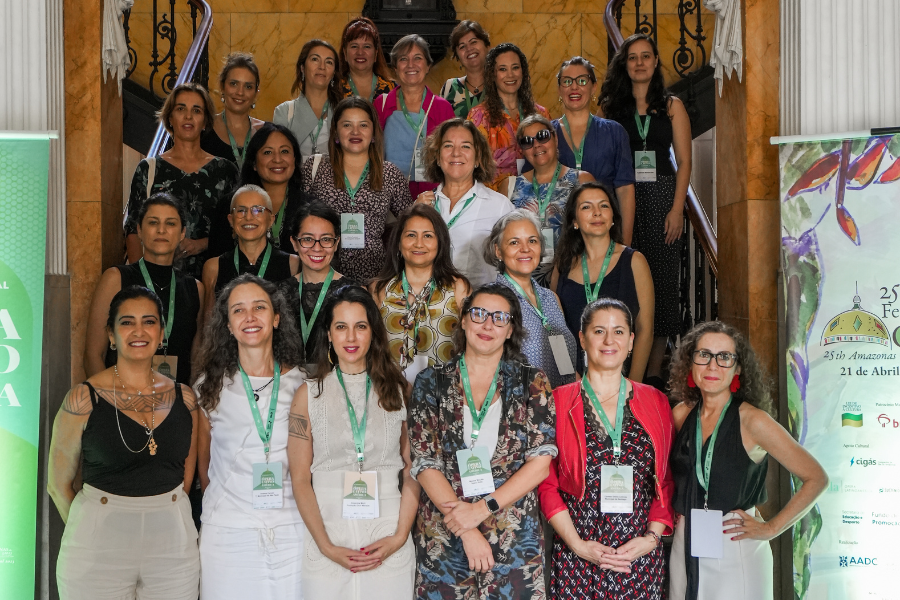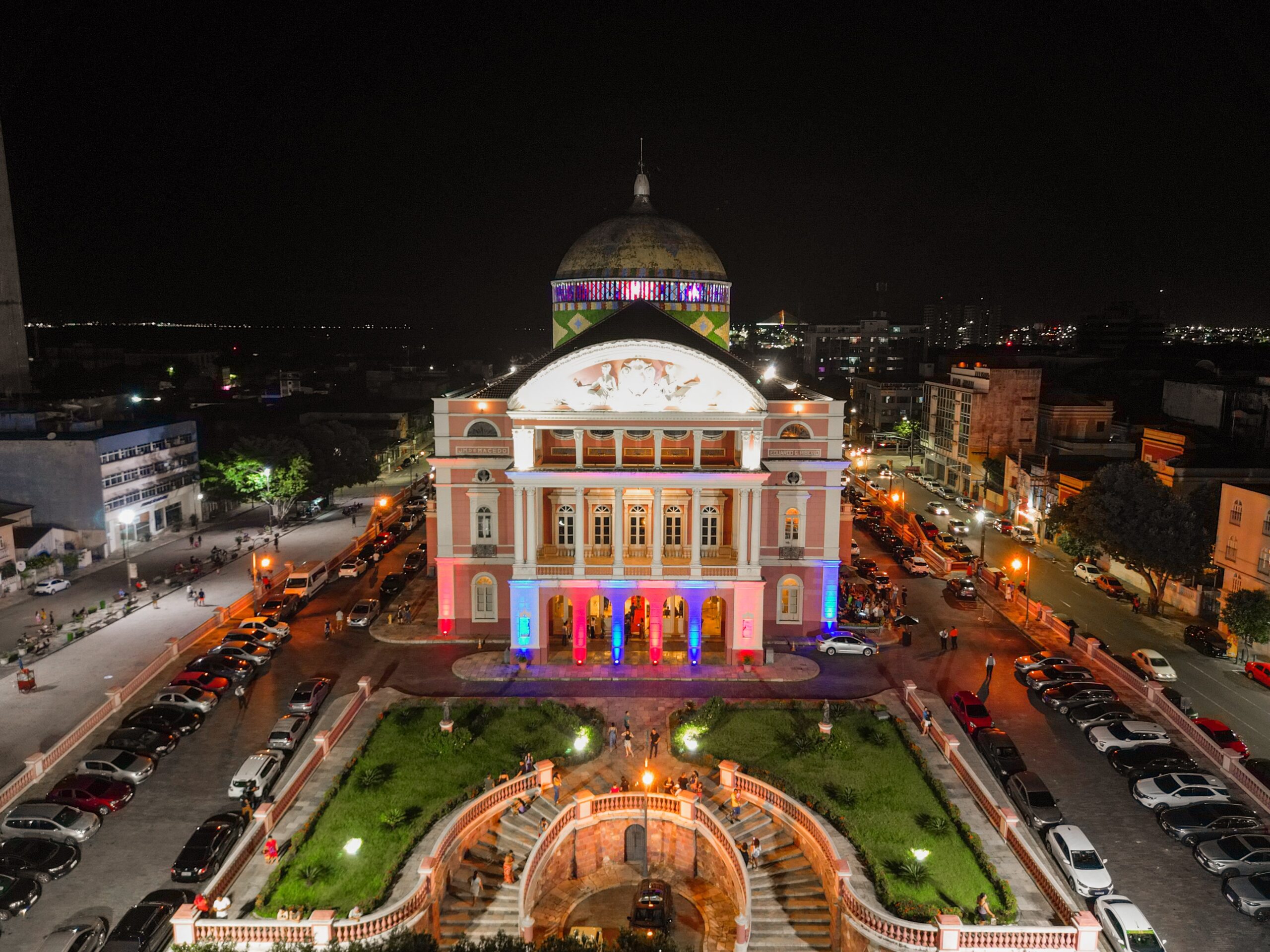OLA 16th Annual Conference: The strength of Latin America

An honest and constructive dialogue around the opportunities that collaboration between theatres and companies linked to the opera implies took place at the 16th Annual OLA Conference. In Manaus, Brazil – within the framework of the Amazonas Opera Festival – new ways of managing this type of cultural organisations were also reviewed, a new type of production market was launched and the OLA Women’s Forum was founded.
“The 21st century is the century of networking,” said Flávia Furtado, executive director of the Festival Amazonas de Ópera, at the closing of the 16th Annual Ópera Latinoamérica Conference (OLA), in Manaus, Brazil. And it is that during the four days that the meeting lasted –from May 17 to 21–, the largest in the history of OLA, that the opportunities and cooperation between organizations linked to music and the performing arts became more evident than never.
“OLA is experiencing a stage of institutional maturity and has become the voice of a Latin American ecosystem that includes, of course, theatres, but also independent companies, academia, and even service companies. This maturity occurs today because the shock of the pandemic and the closure of theatres for so many months produced a necessary union that transcended borders. This situation comes together with the purpose that OLA has been promoting since the beginning 16 years ago, which has just made sense now”, reflects Alejandra Martí, executive director of Ópera Latinoamérica.
In this line, Carmen Gloria Larenas, general director of Teatro Municipal of Santiago -one of the founders of OLA-, comments that “the fact that ties are strengthened between professionals from different countries, with different cultures, on a continent which is challenged and very diverse as the Latin American is relevant. This has enormous value, in a context of seeking an understanding to support us in the operation of an activity that was hit hard by the pandemic and that has permanent challenges of all kinds”. Josep Cerdà, director of the Teatre Principal de Palma, Spain recently joined OLA, has a similar perspective: “I was positively surprised by the willingness to collaborate that I saw among all the members of OLA. It seemed to me that everyone was very open to explaining their experiences and learning from each other.”
For the first time in its history, the OLA Annual Conference was open to professionals from entities that are not members of the Ibero-American Theatre Association, totaling more than 100 people from Latin America, the United States and Europe. “That is important, it enriches, broadens our horizons and gives us perspective. This meeting was very important, because it was a meeting of maturity. Many issues were put on the table that are not always easy to talk about and that were put on the table with a lot of confidence, integrity and honesty, each one from their reality, posing the challenges they have”, says Augusto Techera, general coordinator of Artistic Production of Teatro Colón in Buenos Aires.
One of the companies that participated for the first time was Lírica Disidente, created in Chile in 2018. “This opportunity was essential to make our work as a company visible and to establish links that allow us to project and ensure sustainability through cooperation with other organisations,” he says. Nicolás Vásquez, member of the collective.
The co-production and circulation of opera – central axes of OLA’s work – was one of the topics of conversation at the 16th Annual Latin American Opera Conference. Along with instances of dialogue, focused on sharing visions and co-production experiences of different institutions, during the meeting in Manaus a new modality was inaugurated to promote cooperation: a Global Production Market, where artistic projects from independent companies and theatres were shared, from varied sizes, which could result in future ccollaborations.
During the four days work in Manaus, there were also activities dedicated to learning about new management tools that can give sustainability to theatres and cultural organisations. When referring to the 21st century as “the century of networking”, Flávia Furtado cited another woman, Trinidad Zaldívar –head of the Creativity and Culture unit of the Inter-American Development Bank (IDB)–, together with OLA, designed the second axis of work during the Annual Conference. “There was an approach to current trends and themes, with information of great relevance and value for the processes that Teatro Teresa Carreño is carrying out,” says Irvin Peña, executive director of the Venezuelan coliseum.
This second dimension of content and panels focused on innovation and the use of data and new technologies in theatre management. On this occasion, professionals from the IDB, the University of Guadalajara, México, the consulting firm Teknecultura and IE University both from Spain participated, who presented various methodologies and trends which included a practical workshop to apply the topics exposed.
“We have to take quantitative analysis into account to obtain the correct data on the behavior of the public. Why do they go to the opera or why don’t they go to the opera? What segment do they belong to? Which show does an audience of age 20 to 30 prefer versus one of 50 to 80 years old, for example? In this way we can make decisions based on a reality backed by numbers”, highlights Andrea Puente, director of Hispanic initiatives and fundraising at the San Diego Opera (USA) and representative of Opera America.
On the other hand, consistent with the fact that more than 50% of OLA theatres have female directors and that the organization’s board of directors and team is mostly female, on Friday, May 19, a breakfast was held for the participating women. of the Annual Conference, which led to the creation of the OLA Women’s Forum. The new body aims to support and encourage the participation of women in leading roles in the field of opera.
In this way, a commitment promoted by OLA since 2007 was consolidated: to weave networks with professionals related to the sector, who can share knowledge and experiences that strengthen theatres and companies, so that they can fulfill the cultural, social and economic role they have in their territory.
“Theatres, regardless of their size, have to be very attentive to the changes and needs of society, because ultimately the content, administration, work with the public, their financing system or their governance will depend a lot on how This theatre has an impact in each territory. Being able to meet with directors from different latitudes and with a diversity of theatres, contents and ways of working, enriches the look and allows us to be attentive to the needs of the public and the people to whom we owe ourselves as cultural spaces. “, says Victoria Flores, executive director of the Teatro Regional del Maule.
The 16th Annual Conference of OLA, in short, was an instance not only to reflect but also to acquire new tools to manage theatres, companies or projects linked to music and classical performing arts. “This type of instance directly affects the management of theatres because we all come out of these meetings enriched. We have grown”, comments Isamay Benavente, director of Teatro Villamarta de Jerez and president of Ópera XXI the Spanish Theatre and festival association. In this line, Irvin Peña points out that “we leave with great ideas, with inspiration, with many desires to continue collaborating and establishing bilateral relations with each of the participants and to contribute to the strengthening of this organization.”
Andrea Puente also brings another perspective: “Latin American societies are societies that have a lot to tell, with a warm and unique force. We saw it with João Ripper‘s Piedade and with the way in which a Colombian stage director, Pedro Salazar, tells the story of Peter Grimes from the perspective of a town in the Amazon. I’m taking one more thing home with me, which I’m going to share with all my colleagues in the United States: the strength is here, in Latin America.”







